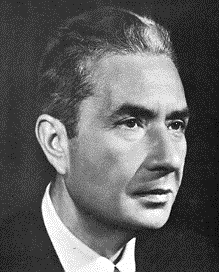Aldo Moro | |||||||||||||||||||||||||||||||||||||||||||
|---|---|---|---|---|---|---|---|---|---|---|---|---|---|---|---|---|---|---|---|---|---|---|---|---|---|---|---|---|---|---|---|---|---|---|---|---|---|---|---|---|---|---|---|
 Moro in 1972 | |||||||||||||||||||||||||||||||||||||||||||
| Prime Minister of Italy | |||||||||||||||||||||||||||||||||||||||||||
| In office 23 November 1974 – 30 July 1976 | |||||||||||||||||||||||||||||||||||||||||||
| President | Giovanni Leone | ||||||||||||||||||||||||||||||||||||||||||
| Deputy | Ugo La Malfa | ||||||||||||||||||||||||||||||||||||||||||
| Preceded by | Mariano Rumor | ||||||||||||||||||||||||||||||||||||||||||
| Succeeded by | Giulio Andreotti | ||||||||||||||||||||||||||||||||||||||||||
| In office 5 December 1963 – 25 June 1968 | |||||||||||||||||||||||||||||||||||||||||||
| President | |||||||||||||||||||||||||||||||||||||||||||
| Deputy | Pietro Nenni | ||||||||||||||||||||||||||||||||||||||||||
| Preceded by | Giovanni Leone | ||||||||||||||||||||||||||||||||||||||||||
| Succeeded by | Giovanni Leone | ||||||||||||||||||||||||||||||||||||||||||
| |||||||||||||||||||||||||||||||||||||||||||
| |||||||||||||||||||||||||||||||||||||||||||
| |||||||||||||||||||||||||||||||||||||||||||
| Personal details | |||||||||||||||||||||||||||||||||||||||||||
| Born | Aldo Romeo Luigi Moro 23 September 1916 Maglie, Kingdom of Italy | ||||||||||||||||||||||||||||||||||||||||||
| Died | 9 May 1978 (aged 61) Rome, Italy | ||||||||||||||||||||||||||||||||||||||||||
| Manner of death | Assassination by gunshots | ||||||||||||||||||||||||||||||||||||||||||
| Political party | Christian Democracy | ||||||||||||||||||||||||||||||||||||||||||
| Spouse | |||||||||||||||||||||||||||||||||||||||||||
| Children | 4, including Maria Fida Moro | ||||||||||||||||||||||||||||||||||||||||||
| Alma mater | University of Bari | ||||||||||||||||||||||||||||||||||||||||||
| Occupation | Professor | ||||||||||||||||||||||||||||||||||||||||||
| Signature |  | ||||||||||||||||||||||||||||||||||||||||||
Aldo Moro (Italian: [ˈaldo ˈmɔːro] ; 23 September 1916 – 9 May 1978) was an Italian statesman and prominent member of Christian Democracy (DC) and its centre-left wing. He served as prime minister of Italy in five terms from December 1963 to June 1968 and from November 1974 to July 1976.[1][2]
Moro served as Italian Minister of Foreign Affairs from May 1969 to July 1972 and again from July 1973 to November 1974. During his ministry, he implemented a pro-Arab policy. Moreover, he was appointed Italy's Minister of Justice and of Public Education during the 1950s. From March 1959 until January 1964, he served as secretary of the DC.[3] On 16 March 1978, the kidnapping of Moro by the far-left armed group Red Brigades took place; he was killed after 55 days of captivity.[4]
Moro was one of Italy's longest-serving post-war prime ministers, leading the country for more than six years. Moro implemented a series of social and economic reforms that modernized the country.[5] Due to his accommodation with the Italian Communist Party leader Enrico Berlinguer, known as the Historic Compromise,[6] Moro is widely considered to be one of the most prominent fathers of the modern Italian centre-left. He governed Italy through the Organic centre-left.[7][8]
- ^ "Aldo Moro | Italian Prime Minister & Political Leader". Encyclopædia Britannica. 20 July 1998. Archived from the original on 1 December 2023. Retrieved 11 August 2023.
- ^ "Mòro, Aldo nell'Enciclopedia Treccani". Treccani (in Italian). 2011. Retrieved 6 August 2023.
- ^ "Biografia: Aldo Moro – Almanacco". Mondi.it (in Italian). 2012. Archived from the original on 14 June 2023. Retrieved 6 August 2023.
- ^ "Il rapimento Moro". Rai Scuola (in Italian). 31 January 2012. Archived from the original on 10 June 2020. Retrieved 6 August 2023.
- ^ "[Pillole di storia italiana] Le riforme del primo centrosinistra: Moro tessitore d'Italia". Tooby (in Italian). 29 November 2008. Archived from the original on 10 June 2020. Retrieved 6 August 2023.
- ^ Broder, David (9 May 2018). "Historically Compromised". Jacobin. Archived from the original on 6 August 2023. Retrieved 6 August 2023.
- ^ Panzarino, Pietro (2014). Il centro-sinistra di Aldo Moro (1958–1968) (in Italian). Marsilio. ISBN 978-88-317-1789-2. Archived from the original on 5 August 2023. Retrieved 6 August 2023 – via Google Books.
- ^ Rolandi, Luca (15 March 2018). "La lezione di Aldo Moro, quarant'anni dopo". La Voce e il Tempo (in Italian). Archived from the original on 14 June 2023. Retrieved 6 August 2023.